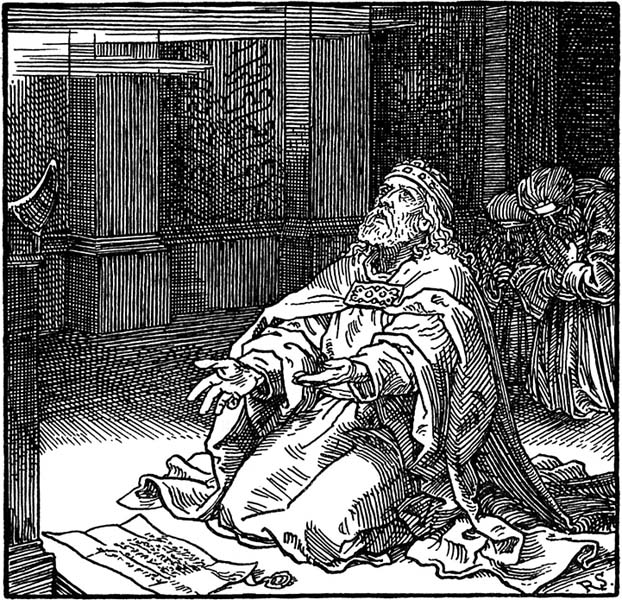Immanuel = Christ?
This time of year Isaiah gets more airtime than at any other point in the calendar, thanks in no small part to GF Handel. One passage used by Handel is taken ultimately from Isa 7:14: "Behold, a virgin shall conceive, and bear a Son, and shall call his name EMMANUEL, God with us." Careful readers of scripture will note that this is not exactly as Isaiah has it: "God with us" is a gloss explaining the name Immanuel, which gloss appears fully in Matthew 1:23. In fact, as is well known, the "virgin" is also slightly inaccurate, since in Hebrew "'almah" ('young woman') is used instead of "betulah" ('virgin'), the concept of 'virgin' entering via the Greek use of 'parthenos' ('virgin') in this verse.
The question I have is whether this verse need be read as Messianic at all. Without Matthew, would this ever have been read as referring to a Messiah? Is there any indication besides our later lenses that Isaiah meant anything Messianic? The verses from Isaiah that immediately surround this section are decidedly non-messianic, and refer clearly to the geopolitical conflict of 734 BC and not to events seven hundred years later.
To this question a response containing the term "dual fulfillment of prophecy" is usually applied: Isaiah was at once referring to Christ and to some child that was to be born in the immediate future. But was he?
I'm having a hard time seeing this as anything but Matthew's being a good first-century interpreter of scripture, and every Christian reading Isa 7:14 accordingly ever since. I find no evidence in Isaiah 7 that Isaiah meant anything besides his and King Ahaz's immediate context, and it strains the sense of the chapter to read with Matthew.
The reason I raise this issue is not to spread a little Christmas doubt, but to get at how we understand prophecy and scriptural authority to work. Furthermore, I have the sneaking suspicion that the concept of 'dual fulfillment' of prophecy is one we have invented to justify our appropriation of scripture, and it crosses an important line between texts being applicable to more than one situation and prophets speaking directly, intentionally to more than one situation. I rather think it's a concept that tends to impede our understanding of scripture, because it usually prevents scripture being read as anything other than it's "ultimate" fulfillment. This is why I've heard BYU profs say things like "Yeah, sure, Isaiah spoke to his time, too, but what he really meant was Christ." The problem becomes then, of course, that in Isaiah 7 we have one verse that makes sense and the rest is gibberish. Who are the two kings? Who is king Ahaz? What is "the land that thou abhorrest?" This chapter is quite specifically grounded in its historical context, and when read in any other way one encounters insurmountable difficulties. No wonder Isaiah has come to be described as a 'hurdle'.















